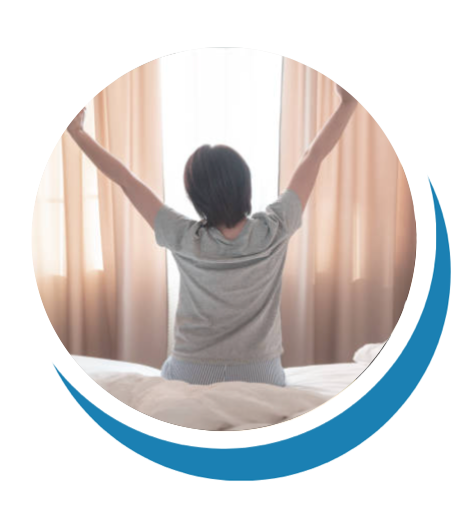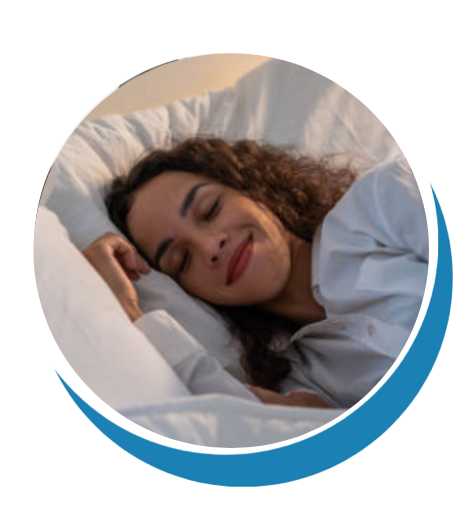
Tips for a good night sleep for Seniors
Do you have difficulty falling asleep ? anxiously waiting for sleep? Not sure how to sleep through the night without waking up? Sleep quality and modes change with age.
Insomnia is a common issue for elderly people. Around one in two seniors suffer from a sleep disorder. The greatest changes to our sleep is between the age of sixty and seventy. Although the total duration of sleep for older people usually doesn’t decrease, their sleep becomes shallower. This can be down to, among other things, changes in sleep structure occurring as the body ages. Seniors experience less deep sleep and become more easily awake.
Older people are more sensitive to external factors, a bedroom that is too warm, a snoring partner or a mattress that isn’t right. Psychological factors also play a role, Loneliness, tension and excessive or insufficient
activity have a negative impact on their sleep.

Most common sleep disorders :
Somatic diseases,
Dementia diseases,
Depression
Inadequately treated pain,
Bed immobilisation,
Adverse effects of medication,
Unfavourable environment (temperature, noise),
Nycturia – urination at night,
Lack of activity during the day.

Older people rarely have difficulty falling asleep the problem is mainly waking up during the night and having difficulty falling asleep after waking up. Seniors also sleep more during the day, usually 30-60 minutes, and correspondingly less at night.
Tips for a good night sleep :
Ensure that the room is ventilated and that the temperature makes it easier to fall asleep. Although it is better to fall asleep in a cooler room, it needs to be slightly warmer for older people. An elderly person should not drink too much water or eat foods that are hard to digest before bedtime.
Exposure to light at the wrong time over a period is going to disrupt the circadian rhythm, even with a regular lifestyle. To strength the circadian rhythm, stay in well lit rooms during the day and use the daylight as much as possible by getting outside. Whereas in the evening exposure to light should be avoided, especially those that will effect the eyes and are blue, such as Tv screens and computers.
Elderly people should avoid using a computer or tv in the last 3 hours before bed or minimum the last hour before bed. Blue light is the strongest inhibitor of melatonin release and for the brain is a signal of dawn, the beginning of the day. Sunset has a yellow-red, warm colour; such soft light should be used in the evening, while the light for reading should always come from behind the head.
Getting the right pillow and mattress. A mattress needs to be reasonably soft, as older people have thinner skin and often a smaller layer of adipose tissue which makes any pressure on the body more noticeable. A mattress that supports thermoregulation is a good solution as elderly people struggle with thermoregulation. It can be too cold for them to fall asleep, yet they can also overheat. A suitable pillow is important, rehabilitative and orthopaedic. A good pillow will reduce muscle tension by positioning the head in the right position and will not block the blood flow.
Calf cramps can be an issue for elderly people, if so, we suggest using a pillow to elevate the feet slightly higher.
For psychological issues heavy blankets and duvets are helpful to reduce the feelings of anxiety.
For any enquires or advice please give us a call we would love to speak to you.

